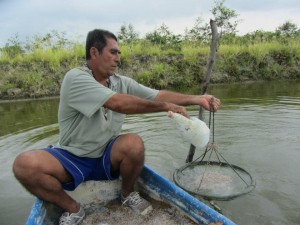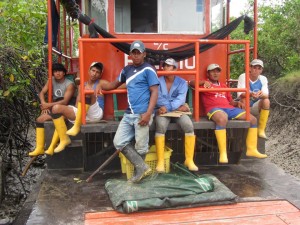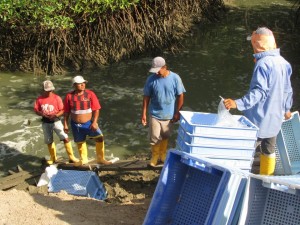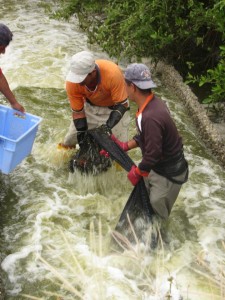Several years ago, I made the decision like many others, to leave my well guided path of working my way up the ranks in a stable career, to venture off on a new journey traveling around the world and looking for alternative possibilities for earning my way in life. I had no solid idea of where exactly I wanted to go or what I wanted to do, just that I had to start investigating the numerous opportunities that this vast world provides.
During the planning phases for my world travels I looked into various volunteering opportunities as a way of keeping my mind occupied with more than the usual tourist agenda and to discover new career possibilities that didn’t involve being confined to an office. I discovered WWOOF, a membership-based listing of organic farms that accept volunteers in exchange for free room and board and after perusing some of the listings and feedback from other volunteers, decided this would be an excellent way for me to pass my time traveling and experiencing a broader experience than the usual tourist itinerary. I would be relying on my Spanish skills, eating what the locals, ate and integrating some much needed exercise in my routine.
Why a Shrimp Farm?
I originally started looking for farms in Argentina with far-fetched hopes of finding an organic wine vineyard. It came as no surprise that I didn’t have much luck; I imagine that more than a few travelers out there were itching to pass their vacation time amongst these sought after vineyards. I found that the majority of the listed farms were vegetables, which in retrospect, should have been obvious. This would have been fine until I noticed the trend that they were also mostly vegetarian, a lifestyle that I try to avoid. Again, this probably should have been obvious. I was a bit discouraged after a fair number of requests for stays, but eventually happened upon a listing for a shrimp farm near Guayaquil, Ecuador and was intrigued. Before I even sent in my application to the farm, I started envisioning myself as one of my favorite movie heroes, Forrest Gump, wrangling a bunch of shrimp during the day and feasting on them at night.
Set to Task
After explaining to people that I planned to volunteer on an organic shrimp farm, the first question was: What does a volunteer such as yourself actually do on a shrimp farm? In my case, I helped out with the less strenuous tasks such as feeding the shrimp from a boat and testing water quality in the lab. My spasm prone back and I were happy enough to leave the more physically laborious tasks such as hauling 40 kg sacks of shrimp feed across the yard to the professionals who worked there. After my daily chores of shrimp feeding were complete, usually around lunchtime, the rest of the day was usually spent resting in hammocks and mingling with the locals who worked there full-time.
After spending six weeks on the farm, I was grateful for the time spent there, ready to move on to a new destination and eager to share the stories of the shrimpmen. Being able to have conversations with the local workers that transcend the standard personal background checks, was probably the most valuable benefit from this particular volunteer experience. Being a group of over 40 workers who spend 3 weeks of every month with only each other and few outsiders, they were all more than happy to converse with the volunteers, sharing their life stories and asking about ours. By the end of this trip, I heard countless tales, both sad and humorous about ex-wives, being 1 of 17 siblings, only having 5 children, baby mamas and more! The conversations always centered around the topic of families and though they were a bit uncomfortable at first, especially the ones inquiring about my status as a single woman, this is what ultimately made this volunteer experience one of the most memorable ones.

~ By guest blogger, Lisa A Brignoni. Lisa volunteered at an organic shrimp farm in Ecuador for 6 weeks, and has traveled all over South America. She writes about travel, finance, and career breaks on her blog, Globally Misguided.


